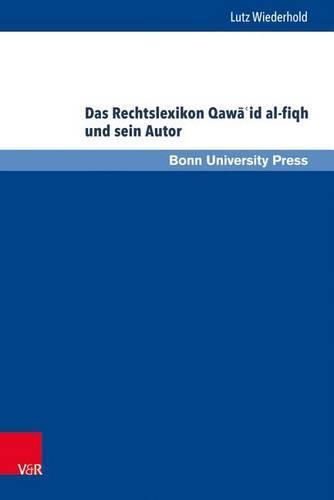Readings Newsletter
Become a Readings Member to make your shopping experience even easier.
Sign in or sign up for free!
You’re not far away from qualifying for FREE standard shipping within Australia
You’ve qualified for FREE standard shipping within Australia
The cart is loading…






When engaging in the study of the Mamluk period (1250-1517), one will certainly find that neither the theoretical foundations nor the de facto implementation of the law system have been researched extensively. In this book, parts of the Qawa'id al-fiqh ( Fundamentals of Jurisprudence ) by Muhammad b. Bahadur az-ZarkaA i (died 1392) will be made accessible. The reader is also provided with information on the jurisprudential and the social backround of the text. Under specific headings, az-ZarkaA i subsumed case studies and abstract rules which were suitable to further explain the content of the selected term. He then again arranged the key words in alphabetical order. A direct connection between the Qaw??id and legal practices could not be confirmed. According to the author himself, the alphabetical order of the work should help to facilitate working with the book during studies but had not been chosen with regard to fast availability of legal rules or precedents in an actual trial.
$9.00 standard shipping within Australia
FREE standard shipping within Australia for orders over $100.00
Express & International shipping calculated at checkout
When engaging in the study of the Mamluk period (1250-1517), one will certainly find that neither the theoretical foundations nor the de facto implementation of the law system have been researched extensively. In this book, parts of the Qawa'id al-fiqh ( Fundamentals of Jurisprudence ) by Muhammad b. Bahadur az-ZarkaA i (died 1392) will be made accessible. The reader is also provided with information on the jurisprudential and the social backround of the text. Under specific headings, az-ZarkaA i subsumed case studies and abstract rules which were suitable to further explain the content of the selected term. He then again arranged the key words in alphabetical order. A direct connection between the Qaw??id and legal practices could not be confirmed. According to the author himself, the alphabetical order of the work should help to facilitate working with the book during studies but had not been chosen with regard to fast availability of legal rules or precedents in an actual trial.